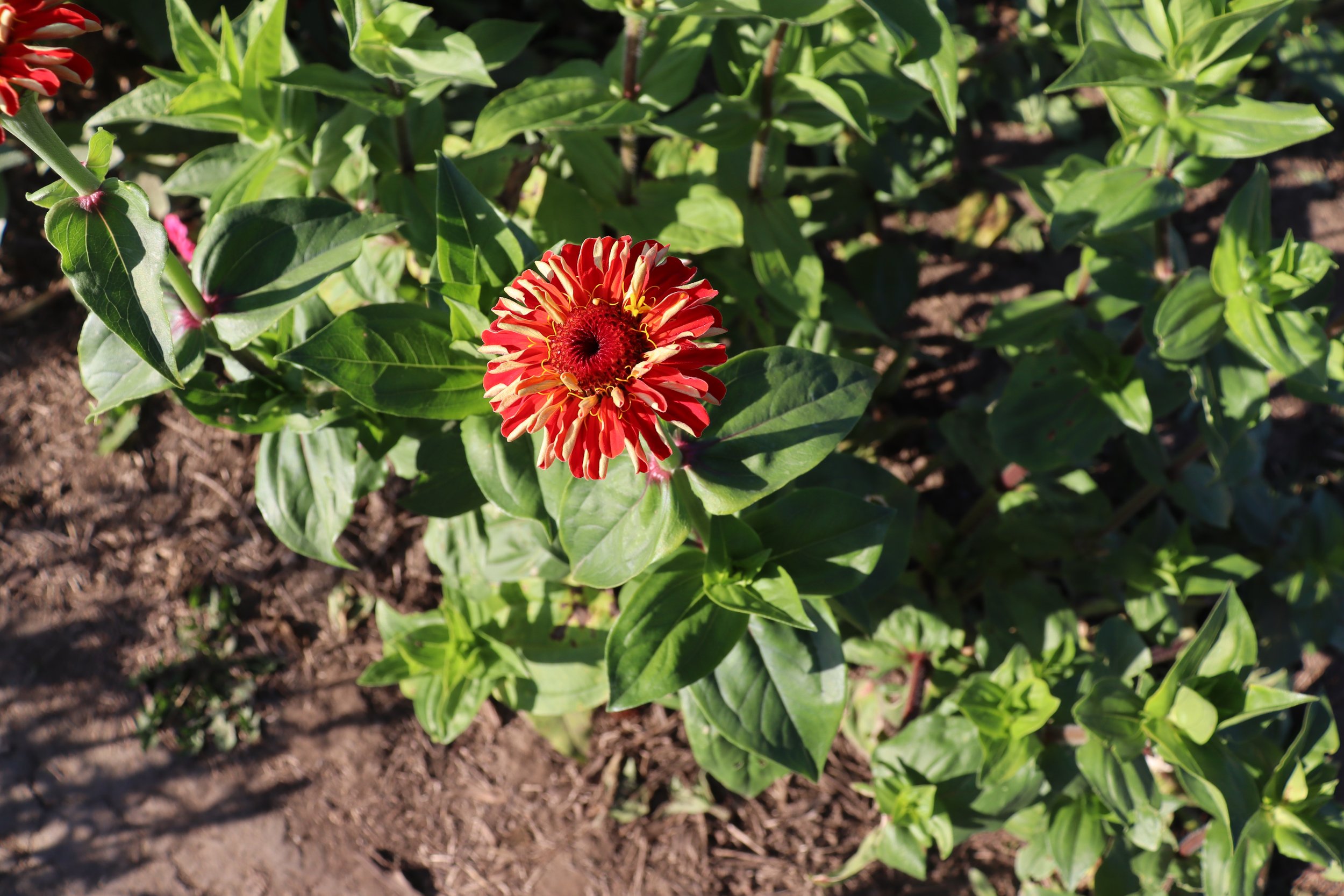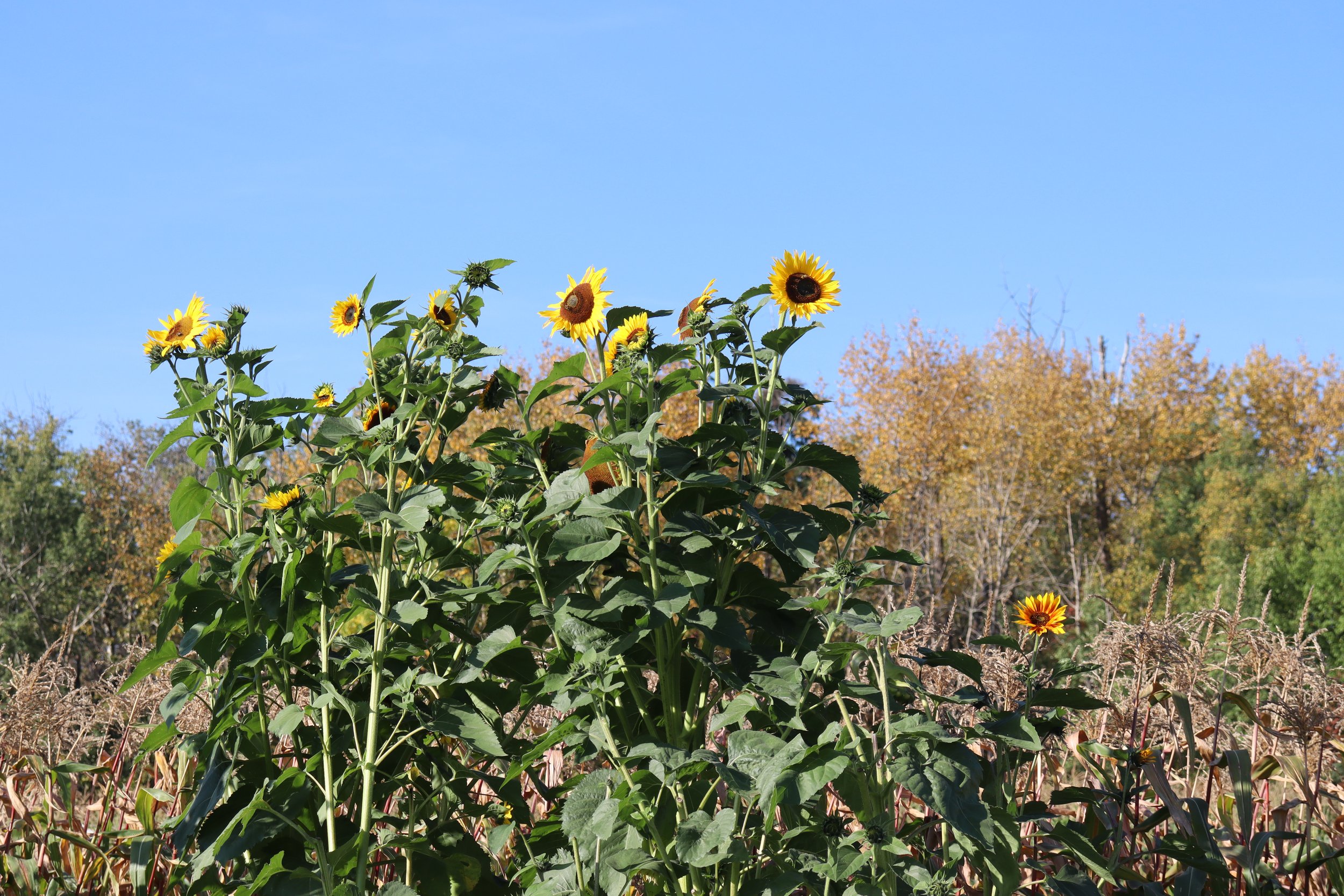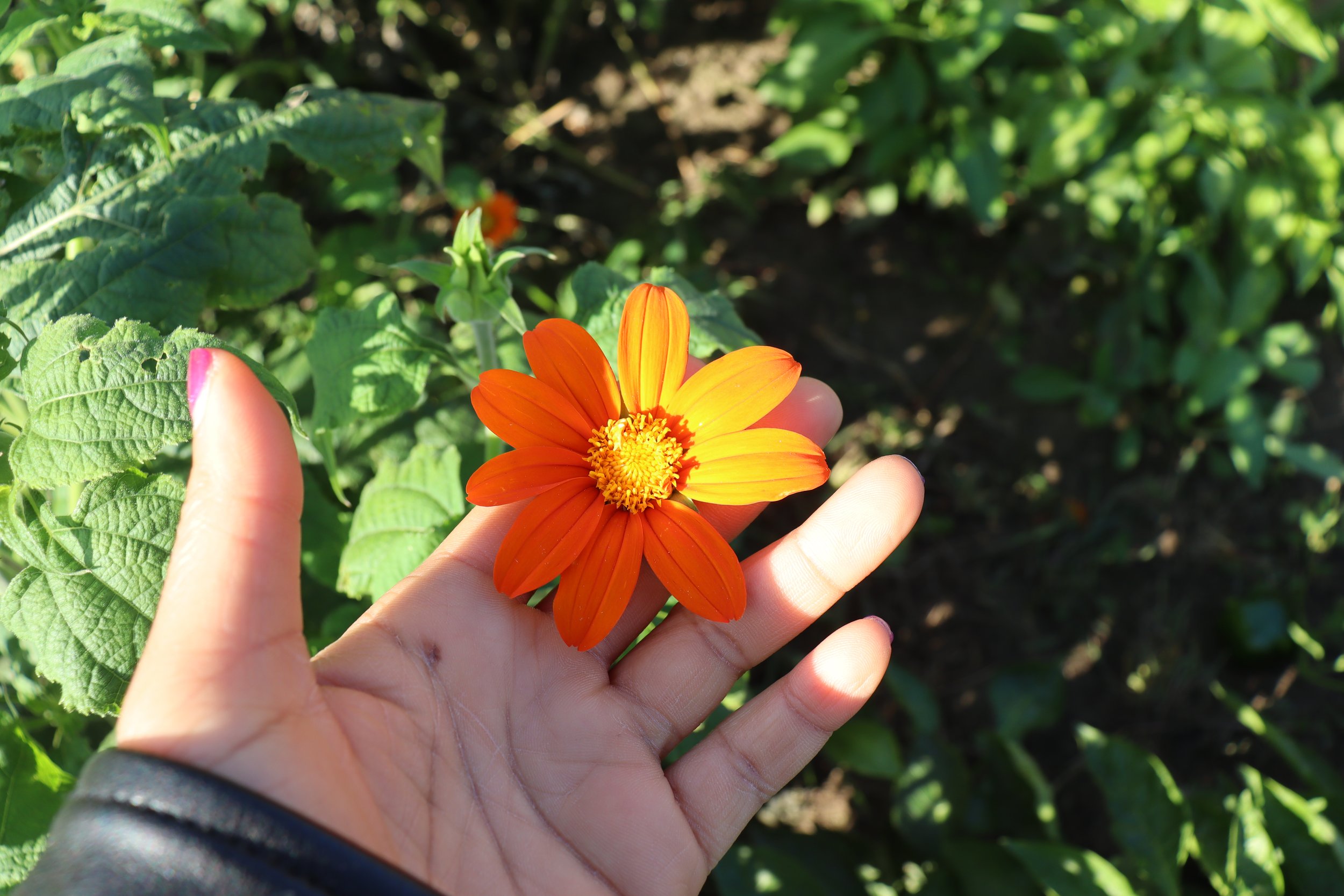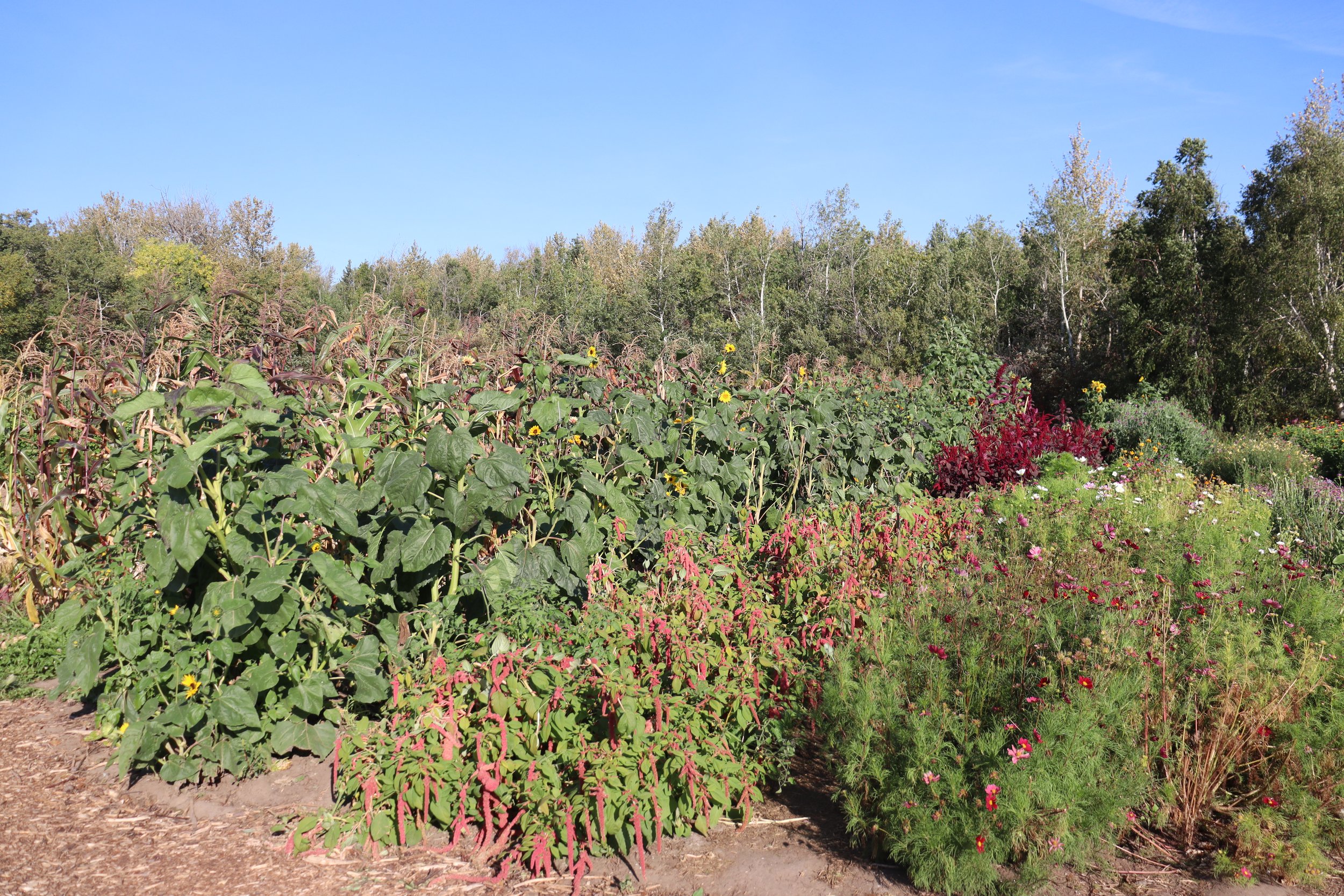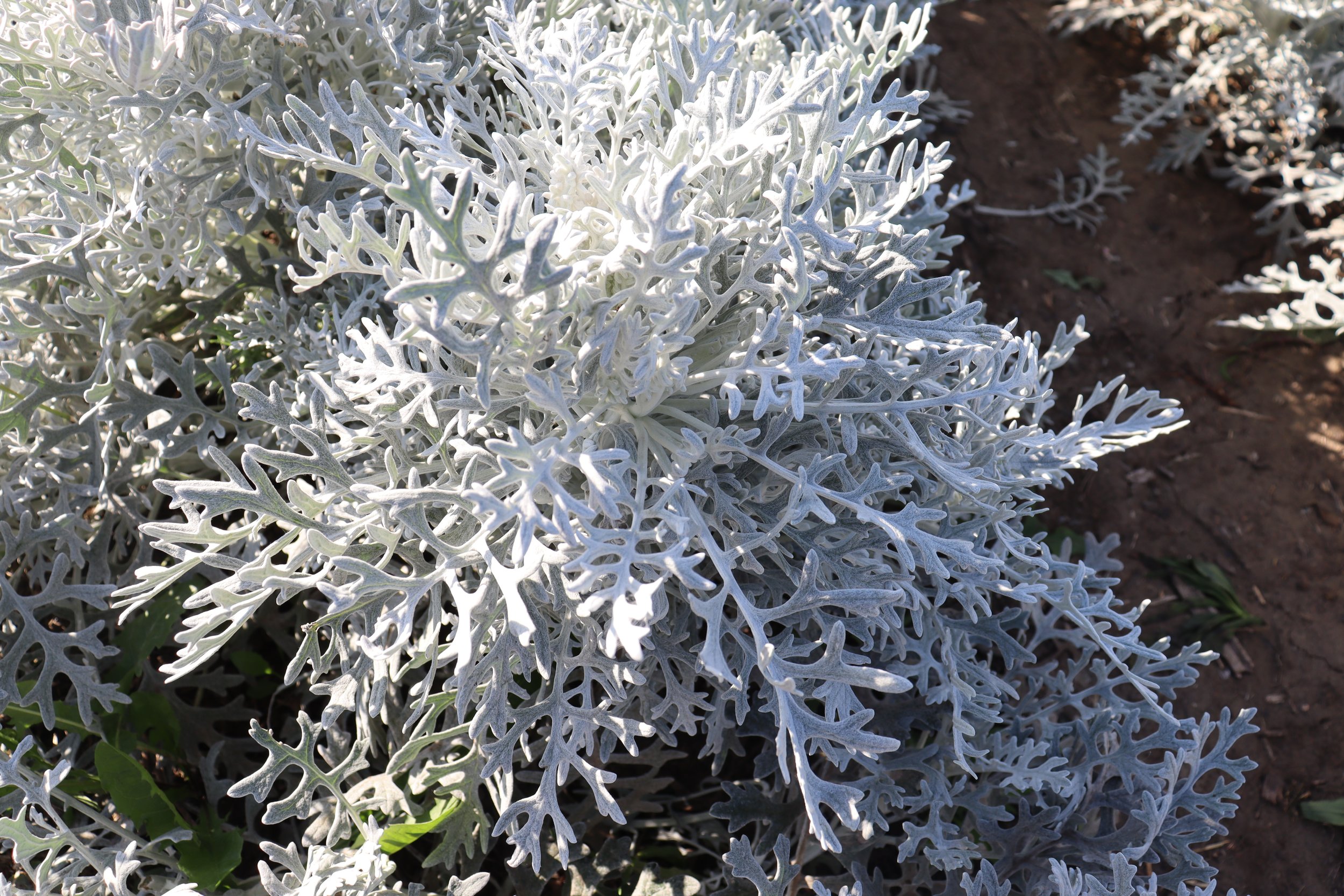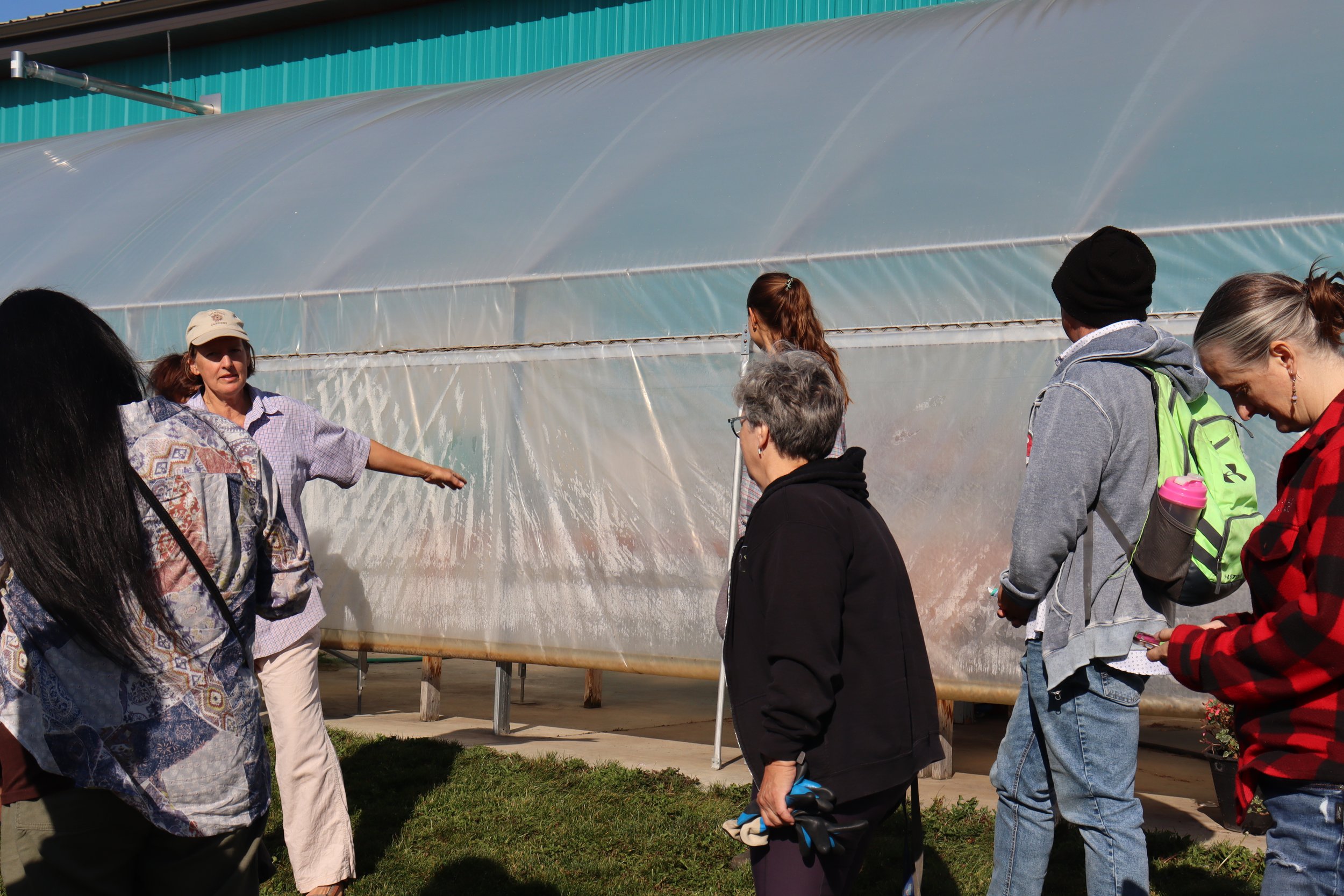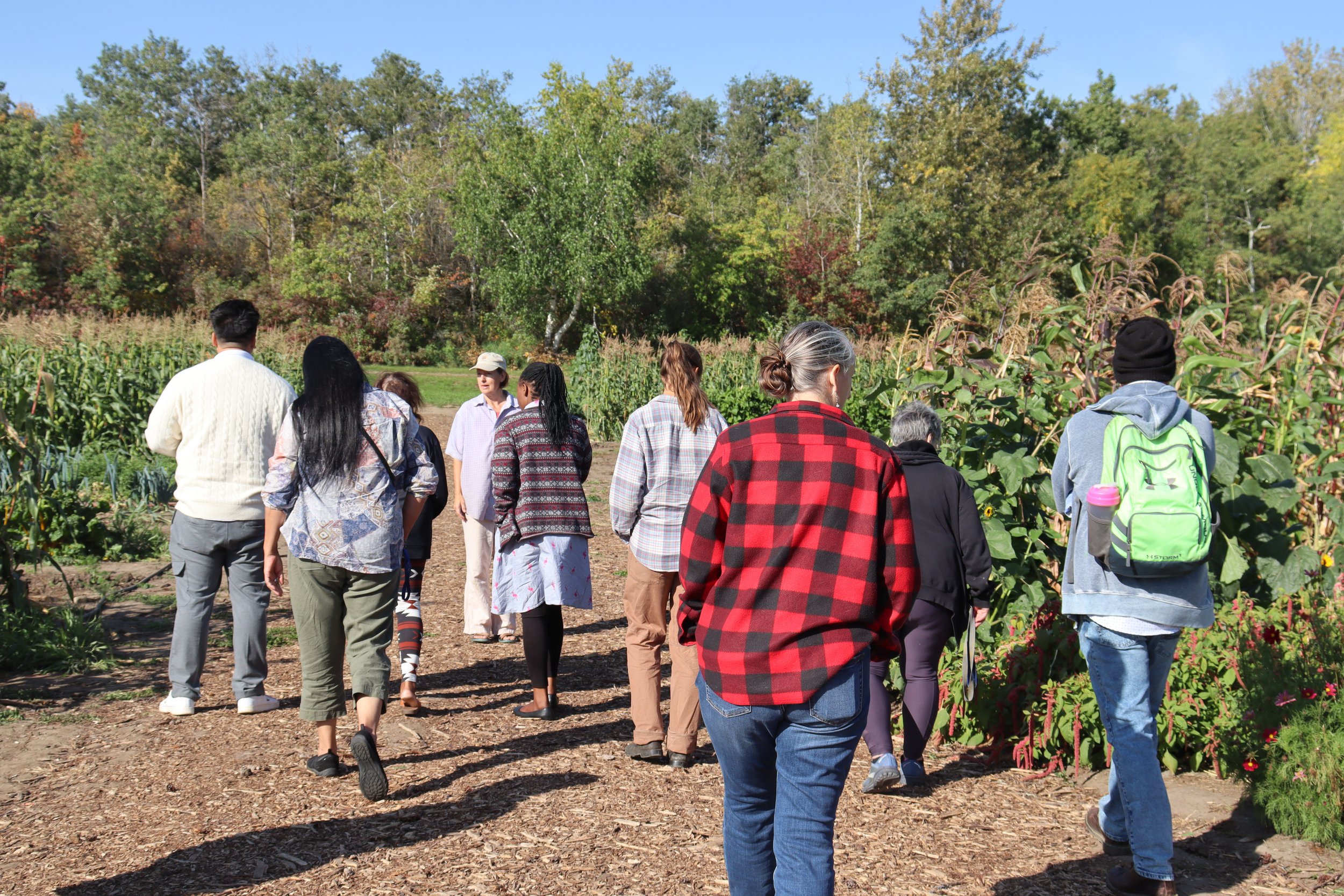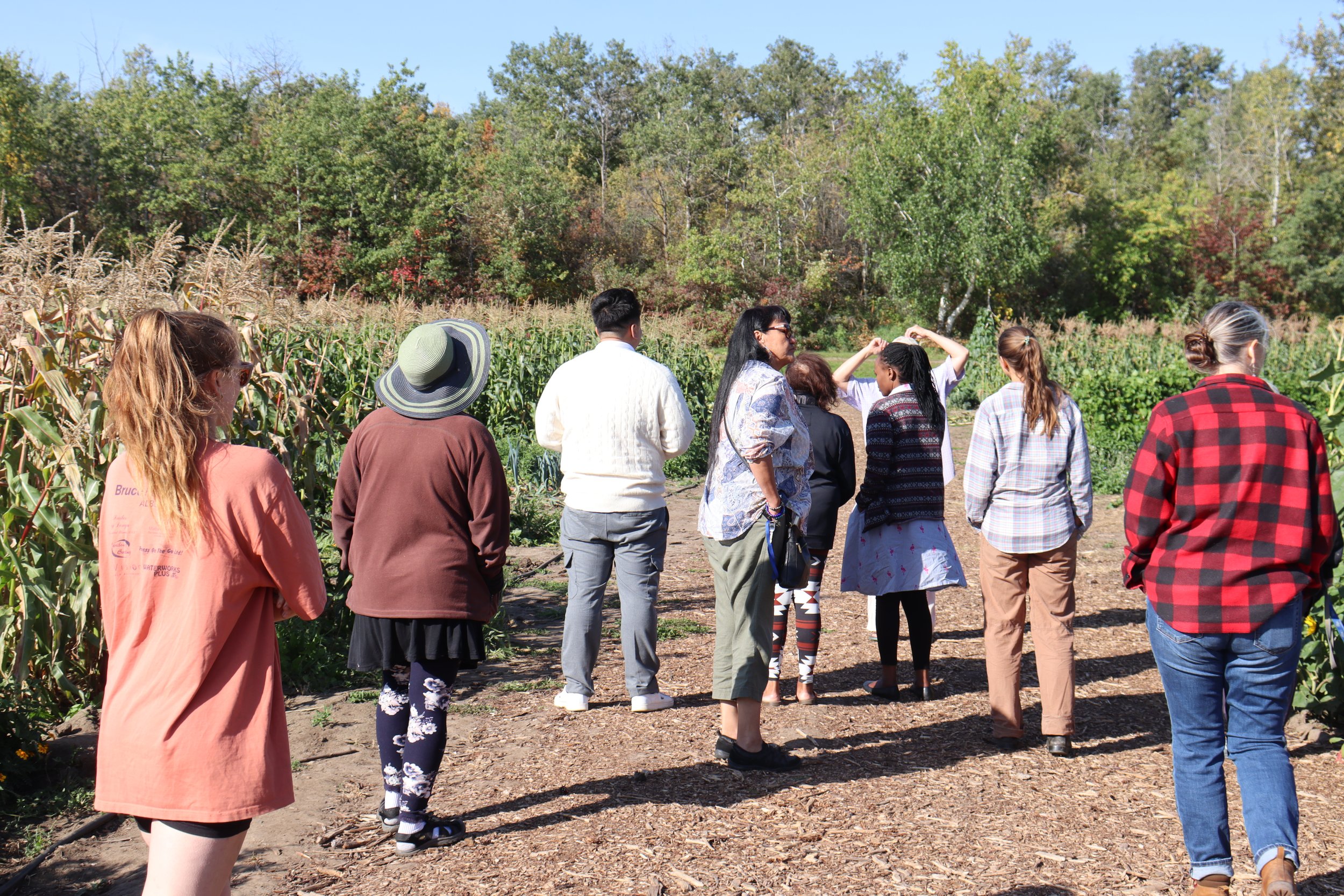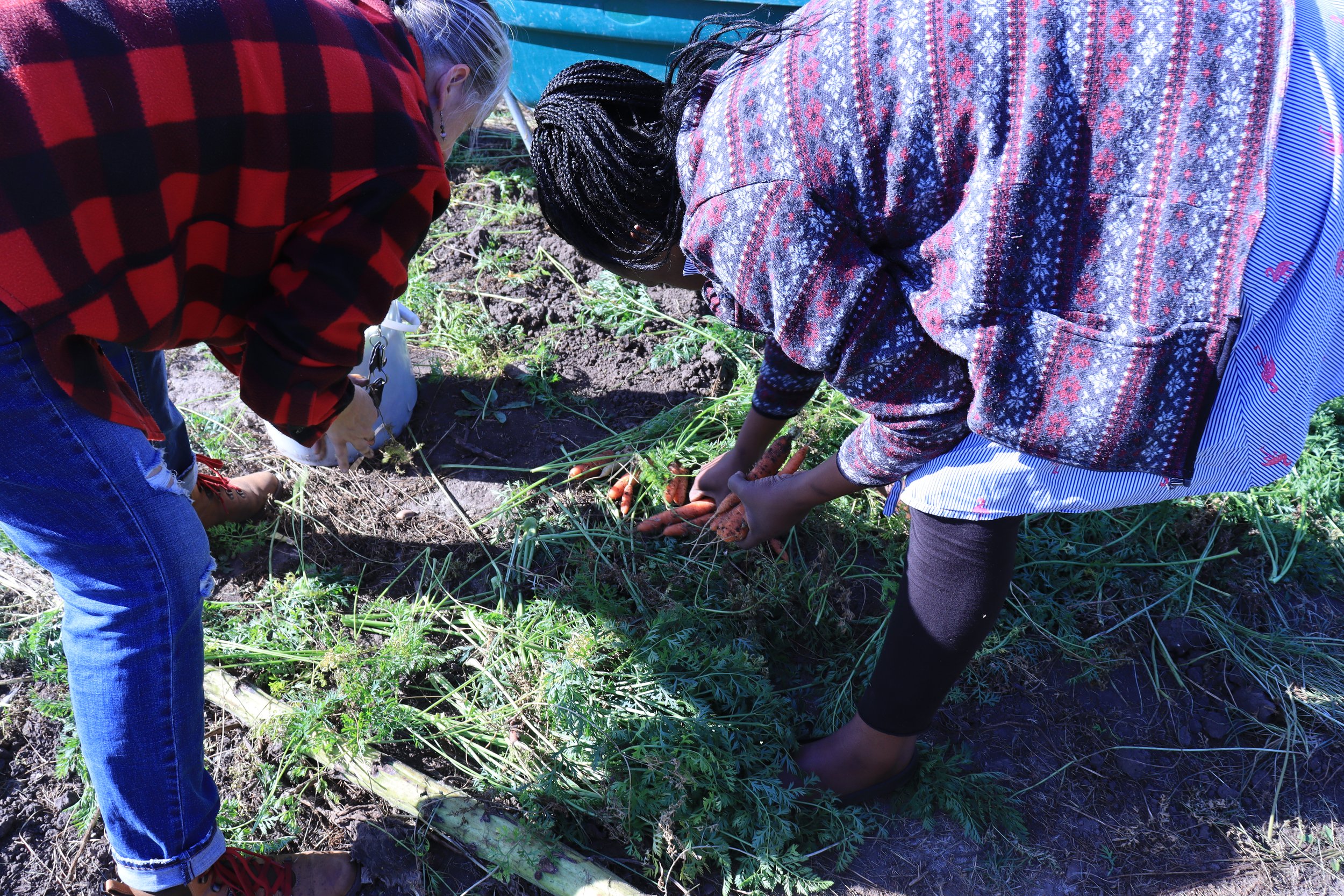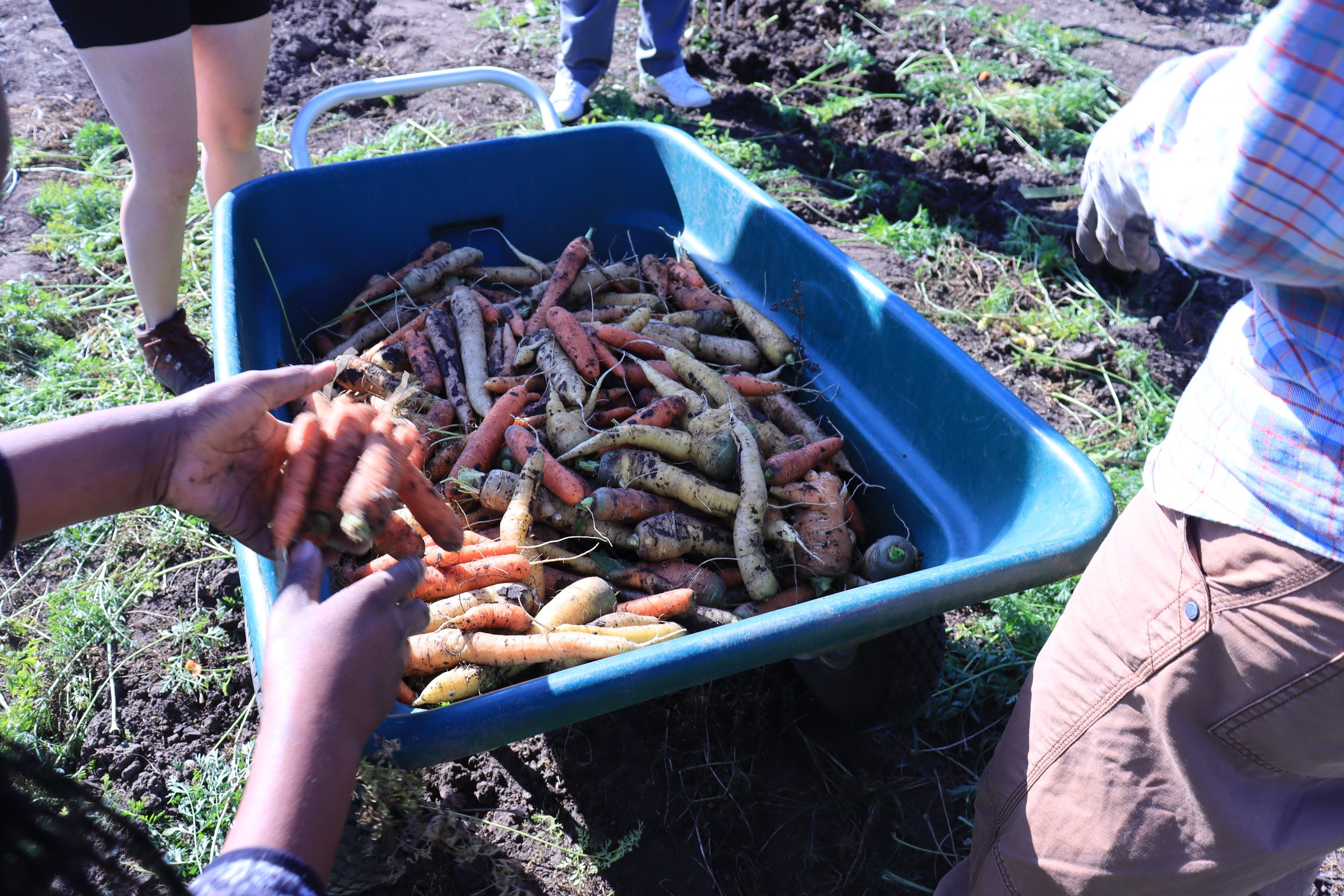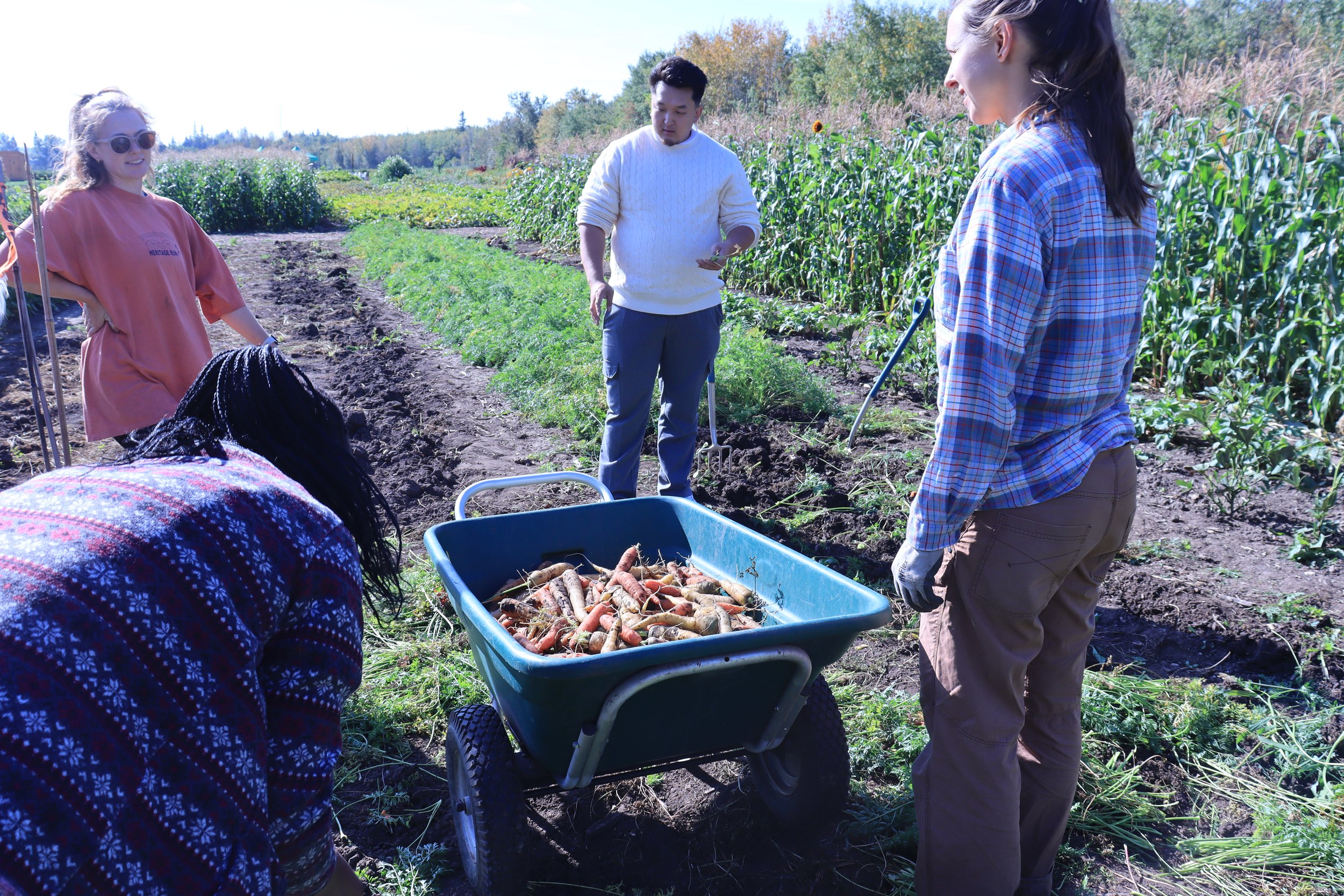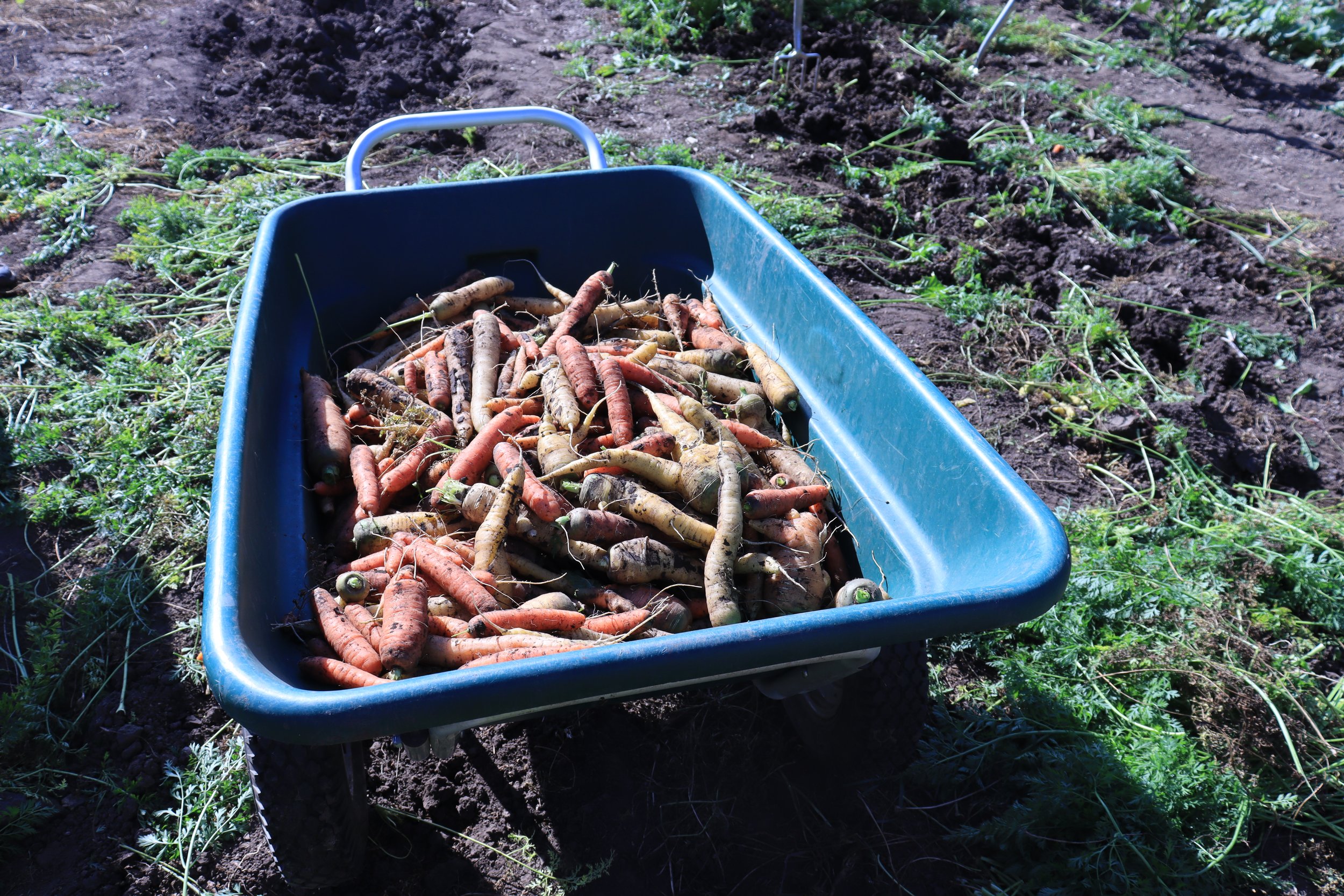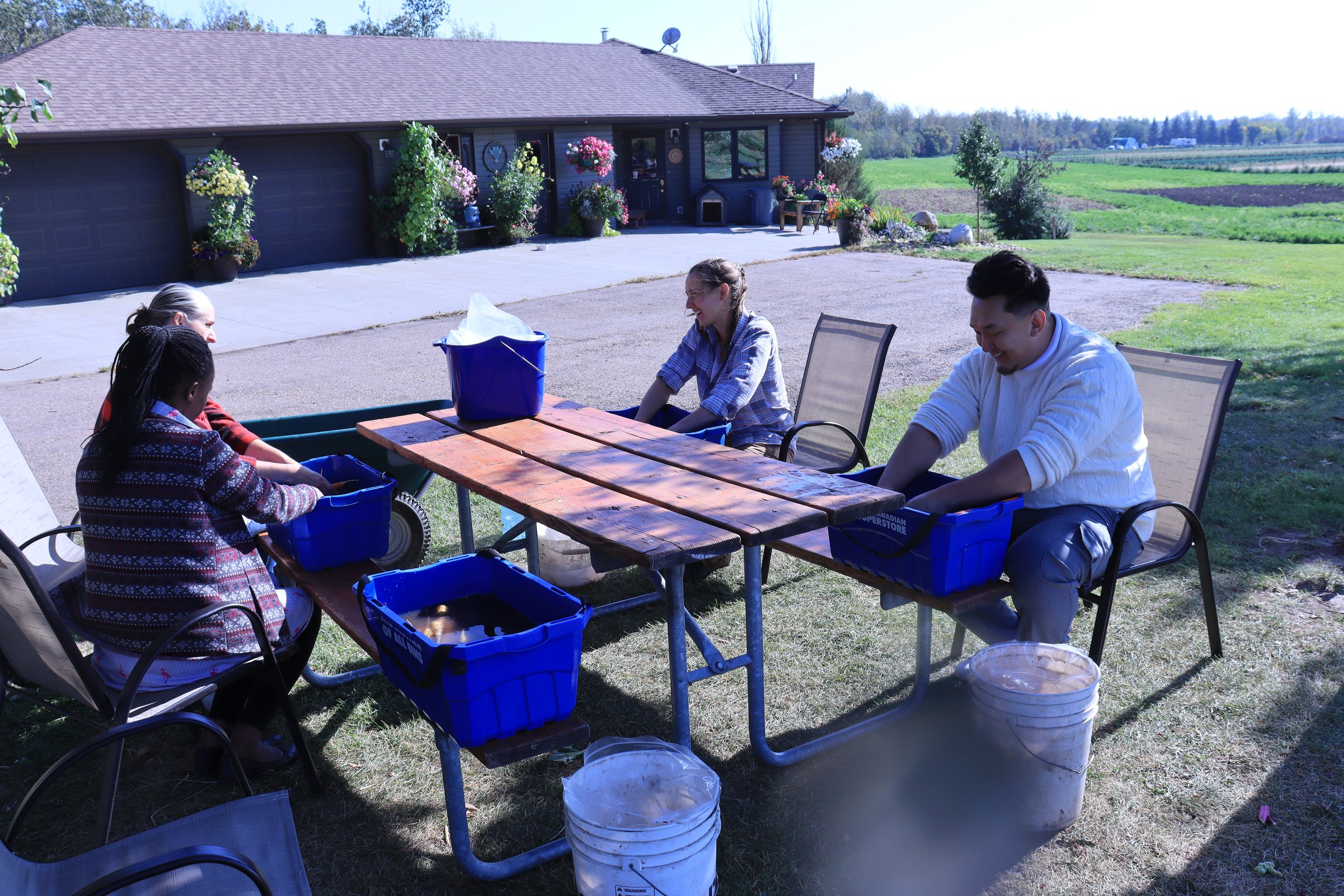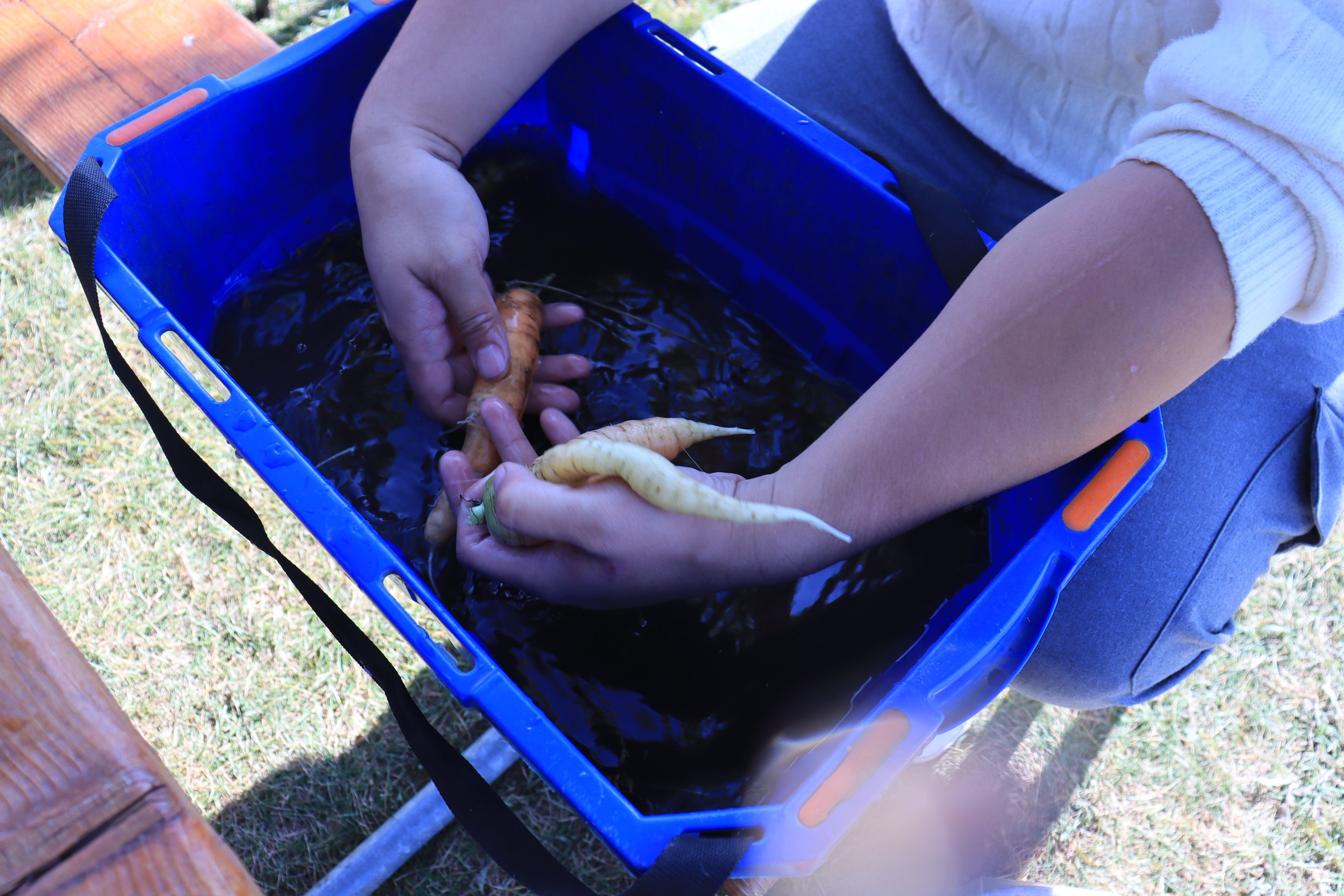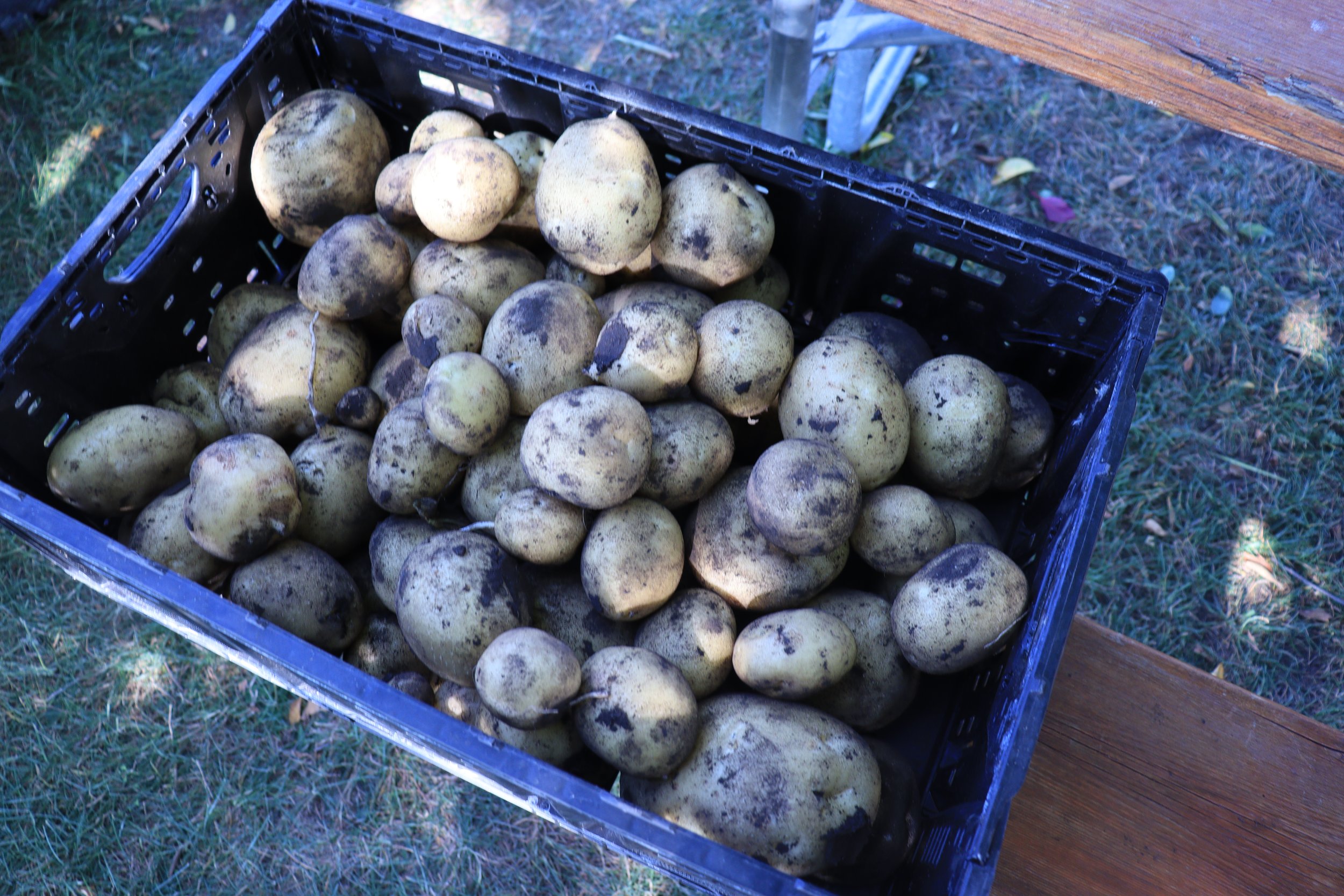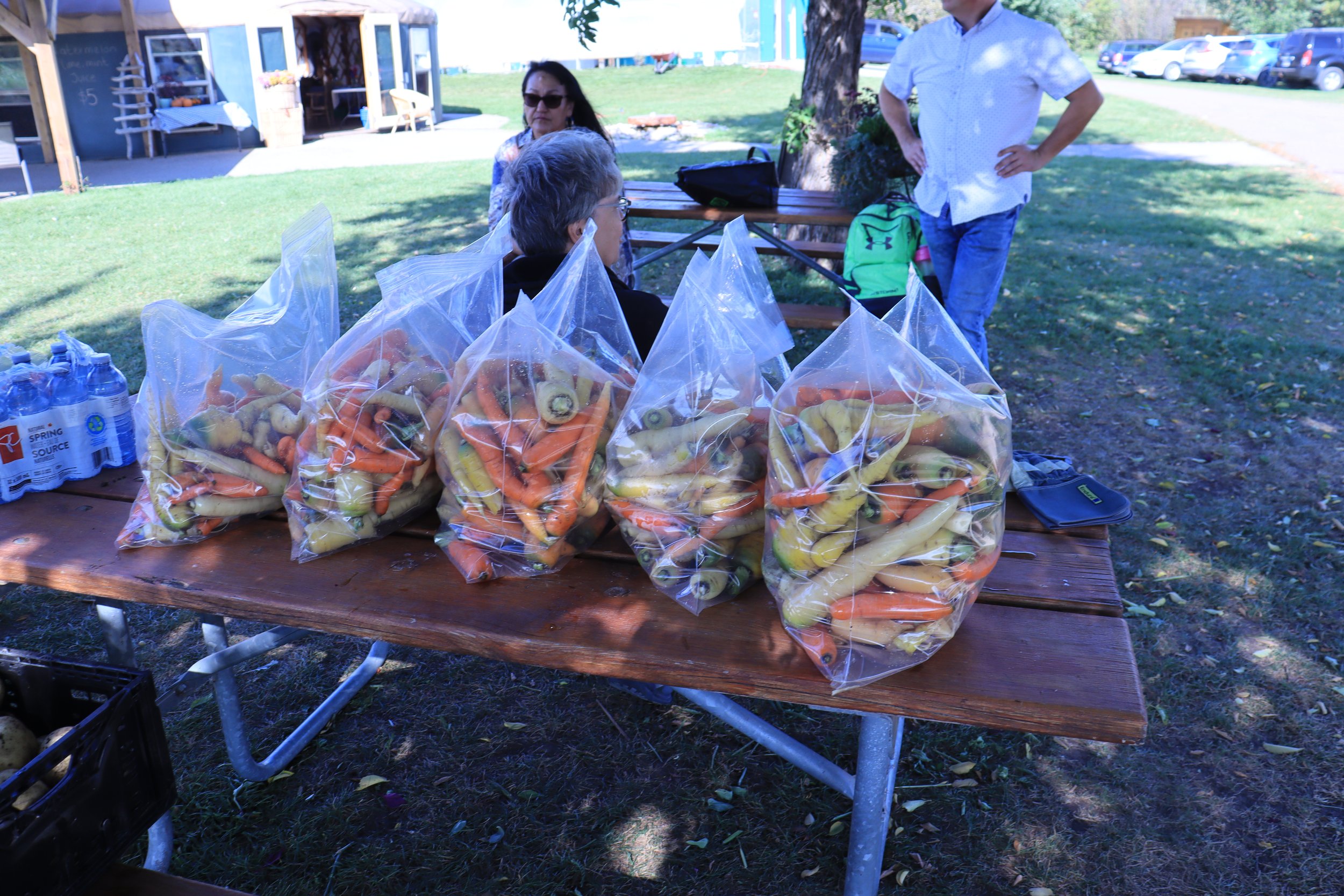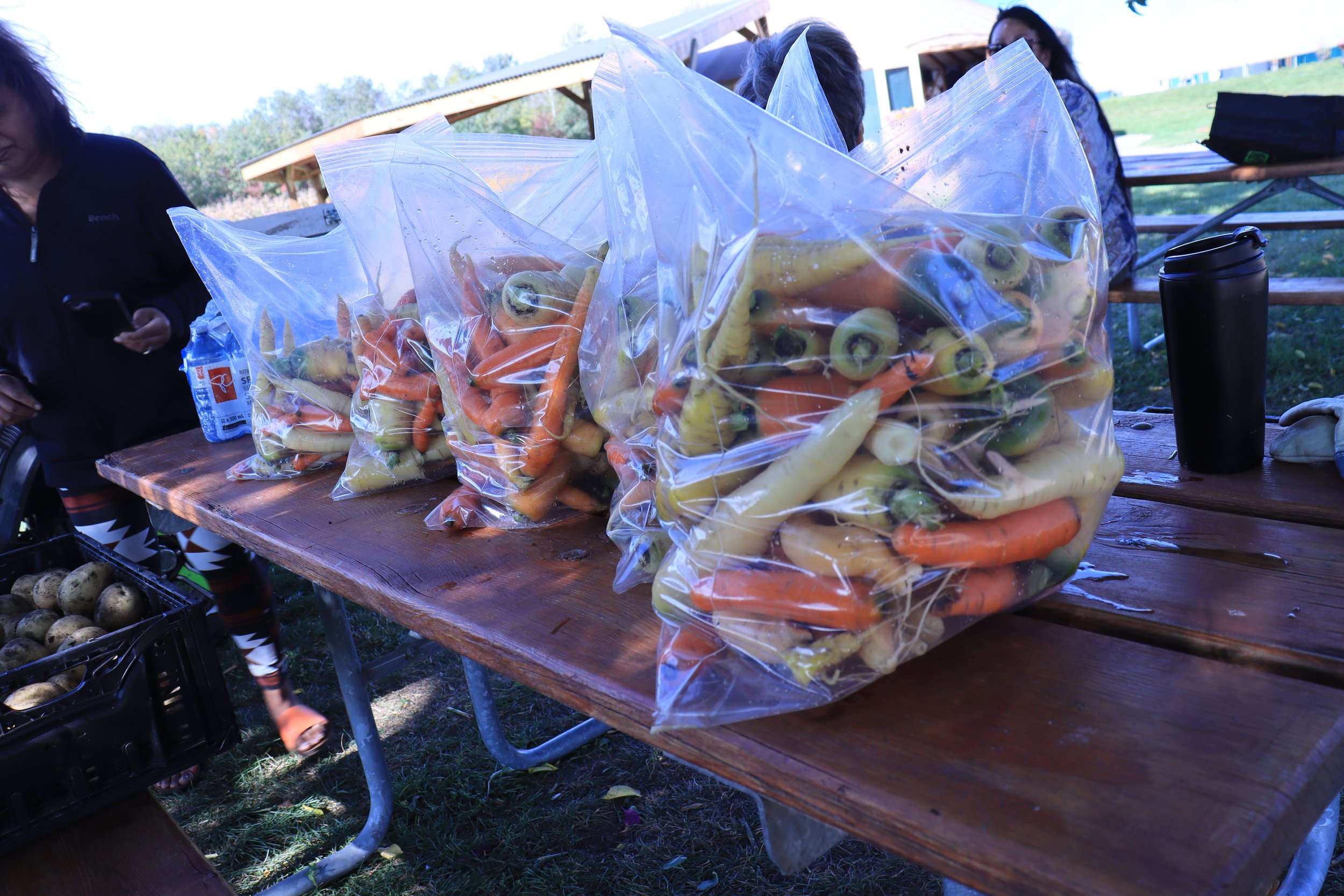Visiting Lady Flower Gardens - An Innovative Model for Food Sovereignty
Lady Flower Gardens (LFG) is a beacon of hope nestled north of the urban landscape of Edmonton, Alberta. This registered not-for-profit organization has dedicated itself to fostering mental health and wellness among disadvantaged Edmontonians by providing access to the bounty of 15 acres of agricultural lands and a shared 75-acre old growth forest along the scenic North Saskatchewan River. In this blog post, we'll take you on a journey through the eyes of two visitors, Ed and Idara, who had the opportunity to witness the remarkable work being done at Lady Flower Gardens during their visit earlier this Fall in the midst of harvest season.
Ed's Perspective
Hands-on activities at Lady Flower Gardens provided me with a profound and eye-opening experience. Stepping into their lush greenery, I was immediately struck by the diverse range of plant life that they cultivate. The real magic, though, happened when we started harvesting and preparing the vegetables they grew for the food bank. It was a tangible way to witness the impact of their work on community food security.
Our gracious host, Kelly Mills, shed light on a critical issue facing urban farming initiatives like LFG. Many community gardens are seen as temporary land uses, which, in the long run, exacerbates food insecurity. To truly thrive, urban farming and local food sources need access to land for long-term agricultural purposes. Without this commitment, they risk becoming mere symbols of good intentions rather than effective solutions.
To make a meaningful impact, Lady Flower Gardens recognizes the importance of fostering discourse, collaboration, partnerships, and training involving government bodies, organizations, land developers, and the community at large. Their ambition is not only to expand their own capacity but also to educate others, thereby encouraging more organizations to get involved with local urban farming. This, they believe, will further develop food security in our community and help shape a more sustainable future for Edmonton.
Idara's Insights
My visit to Lady Flower Gardens was a truly informative and engaging experience. Observing the variety of plants grown on the land and participating in hands-on learning activities made me appreciate the vital role non-profits like Lady Flower Gardens play in ensuring food security for disadvantaged communities.
What made the visit even more enlightening was the presence of various partners and stakeholders, which facilitated open discourse and the sharing of diverse experiences. A common theme that emerged from these discussions was the importance of community building. Lady Flower Gardens operates with a substantial amount of support from volunteers and volunteer organizations, underscoring the significance of collective effort in achieving their mission.
As we explored the topic of how to share agricultural land in a growing city like Edmonton, it became evident that the expansion of urban farming faces complex challenges. With Edmonton's rapid expansion, the need for a sustainable approach to managing land resources became even more pressing. The visit reaffirmed the importance of Lady Flower Gardens' mission to secure long-term land for urban agriculture, in order to provide a lasting solution to food insecurity.
Nationwide Food Insecurity needs innovative solutions - Calls to Action
The alarming increase of nationwide food insecurity highlights the critical need for innovative models and approaches such as that used by Lady Flower Gardens. It calls for solutions including long-term urban agricultural land use, community building, and collaboration in addressing the growing issue of food security. These issues and solutions were highlighted as Calls to Action in the Agenda 2030: Edmonton Food Security Report released by the John Humphrey Centre in Spring 2022, including:
Creation of Collaborative and Connections Spaces for Agencies and Frontline
Collaboration with Farmers/Land Use
Strengthen Growing, Processing and Storage of Food
Strengthen Local Production and Distribution
Access to Space
Our visit to Lady Flower Gardens reinforced the report’s findings and showcased a successful model that can be effective in reducing food security and increasing access and potential for more people to achieve food sovereignty. The city of Edmonton has potential galore, and organizations like Lady Flower Gardens prove that with dedication, discourse, and cooperation, we can create an abundance of food for everyone, nurturing a more equitable and resilient community for all.
Conclusion
Lady Flower Gardens stands as a symbol of hope and a source of inspiration for Edmonton and beyond. The organization's commitment to addressing food insecurity through urban farming is not only commendable but also a model for a more sustainable and food-secure future. The models and approach of Lady Flower Gardens highlights solutions that help move forward the Calls to Action highlighted above. Lady Flower Gardens hopes to expand their initiatives, but this takes collaboration, funding and collective advocacy. If this is something your organization wishes to support or learn about, we encourage you to engage with them and support advocacy efforts for great initiatives like this!
To learn more about Lady Flower Gardens or contact them, visit their website: ladyflowergardens.com
